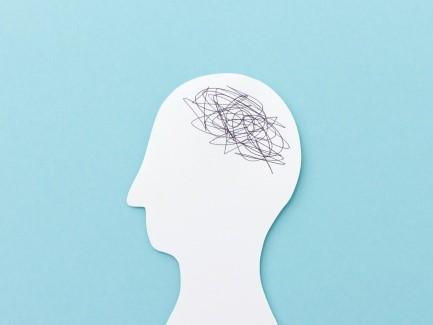
Le magnésium peut-il aider à lutter contre l'anxiété ?
Peer reviewed by Dr Krishna Vakharia, MRCGPLast updated by Lydia SmithLast updated 12 Dec 2023
- TéléchargerTélécharger
- Partager
TikTok is full of claims over the health benefits of magnesium, including that it can help relieve anxiety - something many of us struggle with, especially around Christmas. As anxiety is so common, it's understandable that people turn to different methods to deal with it. But are the claims made on social media backed by science?
Dans cet article :
Poursuivre la lecture ci-dessous
Does magnesium help reduce anxiety?
Magnesium is an essential mineral found in the body. It plays an important role in helping parts of the body run smoothly, including the heart, bones, muscles and nerves.
It also supports the neurological mechanisms that, when not working properly, may contribute to the development of mental health issues like depression and anxiety1. For example, magnesium helps to regulate neurotransmitters, which sends messages throughout the brain and body.
Magnesium may also be beneficial because it affects the levels of cortisol, a stress hormone, in the body. Lowering cortisol may help to relieve stress and anxiety2.
Some studies have found a link between magnesium and anxiety, but the research is mixed. A systematic review of 32 studies found that people with depression and other psychiatric conditions, like anxiety and obsessive compulsive disorder, were more likely to have lower magnesium levels3. It also found that magnesium had some benefits on mild depression and anxiety, but not generalised anxiety disorder or panic disorder.
A separate review of research papers found that magnesium supplementation - for example, taking magnesium in the form of capsules - appeared to ease symptoms of mild anxiety and anxiety linked to premenstrual syndrome4. According to the researchers, this may be because magnesium helps to improve brain function. However, they also highlighted that many of the studies they looked at were of poor quality - including being based on unreliable self-reporting - so better research involving controlled trials is needed.
Psychiatrist Gregory Scott Brown, an affiliate faculty member at the University of Texas Dell Medical School and author of The Self-Healing Mind, says that while there is some research looking into the relationship between magnesium and mental health, it hasn't proven anything. And as always, caution should be used when it comes to health advice on TikTok.
We need to be careful about getting medical advice from social media platforms, including TikTok because there's a lot of misinformation on these sites and the science isn't always accurately reflected," he says.
"It helps when the person on social media discussing a new medication or supplement has experience working with patients, is a qualified health professional, and has expertise in the field," he adds. "However, even in these cases, sometimes inaccurate information can spread broadly. Always discuss medications or supplements with your doctor when you can."
Choix des patients pour L'anxiété

Santé mentale
Comment gérer une image corporelle négative pendant l'été ?
For many of us, the arrival of summer is a welcome respite from the winter months, with the longer, warmer days and sunshine. But for people who struggle with negative body image, summer can be a time of anxiety, low mood and feelings of insecurity - particularly when we're inundated with unhelpful reminders about being 'beach body ready'.
par Lydia Smith

Santé mentale
Anxiété
La plupart des gens se sentent anxieux de temps en temps. Cependant, l'anxiété peut devenir anormale si elle interfère avec les activités quotidiennes. L'anxiété est un symptôme de divers troubles anxieux. Ceux-ci peuvent souvent être traités. Les traitements comprennent diverses thérapies par la parole et des médicaments.
par le Dr Colin Tidy, MRCGP
Can magnesium help improve sleep?
Research has found a connection between magnesium supplementation and sleep quality, but like the anxiety research, the studies don't show a cause-and-effect relationship. In other words, there may be a link, but it doesn't mean that taking magnesium will give you a better night's sleep.
One review found that magnesium may help people fall asleep slightly quicker, but didn't find that people slept any longer than normal5. Another study of 4,000 people found that taking magnesium led to a borderline improvement in sleep quality, but not in people with depression6.
Poursuivre la lecture ci-dessous
What types of magnesium are available?
Magnesium is available in a variety of different types, some of which are more easily absorbed by the body than others.
Magnesium citrate
This type of magnesium, which is commonly found in supplements, is bound with citric acid. It is easily absorbed by the body via the digestive tract and is sometimes used to treat constipation because it has a laxative effect.
Magnesium glycinate
Magnesium glycinate is formed by combining magnesium with the amino acid glycine. Research suggests that glycine may help improve sleep7.
Magnesium malate
This type combines magnesium with malic acid, which is found in fruits like rhubarb. Studies suggest it is more easily absorbed by the body than other supplements8.
Magnesium taurate
This type contains a combination of magnesium and taurine, an amino acid with anti-inflammatory properties.
Magnesium threonate
Magnesium threonate contains threonic acid, a compound that is produced from the breakdown of vitamin C.
What foods are high in magnesium?
Some good food sources of magnesium include: Almonds, avocados, bananas, breakfast cereals, brown rice, peanuts, leafy greens like spinach, beans, tuna and yoghurt.
Poursuivre la lecture ci-dessous
How to treat anxiety
The two main treatments for anxiety are psychotherapy and medications. Some people may find the two work best in combination with each other, but it depends on the individual and their needs. If you are struggling with anxiety, you should speak to your doctor who can advise the best course of treatment for you.
Pour en savoir plus
Historique de l'article
Les informations contenues dans cette page ont été évaluées par des cliniciens qualifiés.
12 Dec 2023 | Dernière version
25 Sept 2023 | Publié à l'origine
Auteur: :
Lydia Smith

Demandez, partagez, connectez-vous.
Parcourez les discussions, posez des questions et partagez vos expériences sur des centaines de sujets liés à la santé.

Vous ne vous sentez pas bien ?
Évaluez gratuitement vos symptômes en ligne